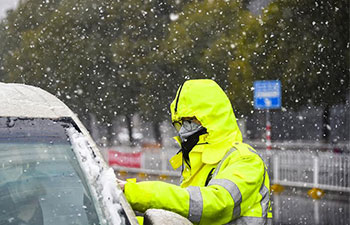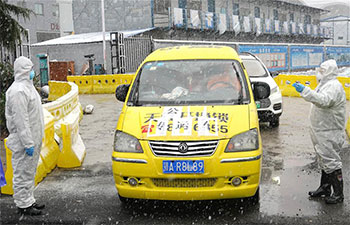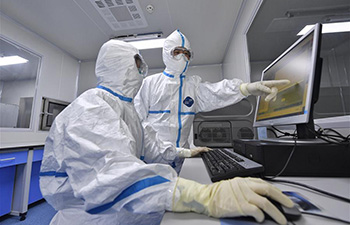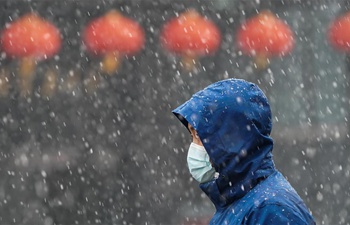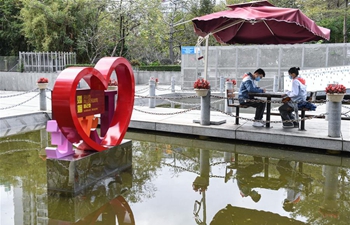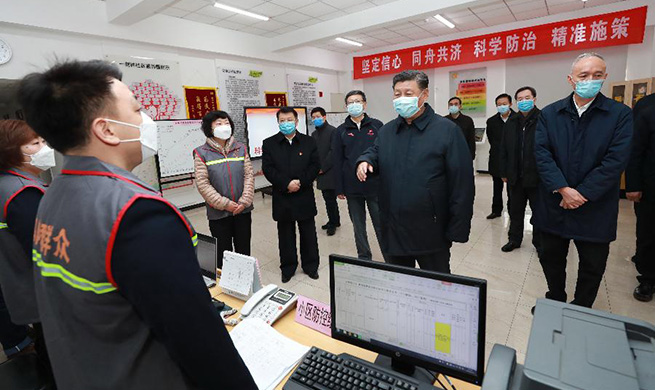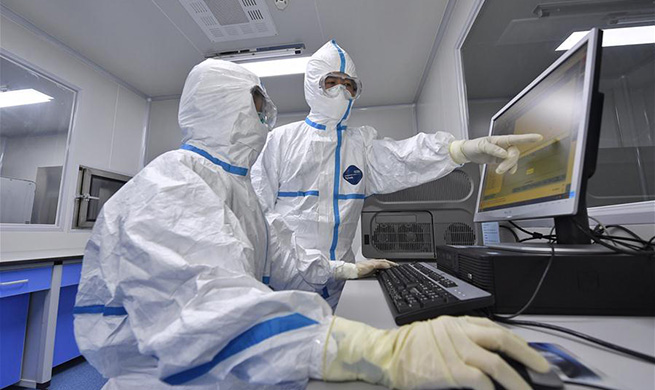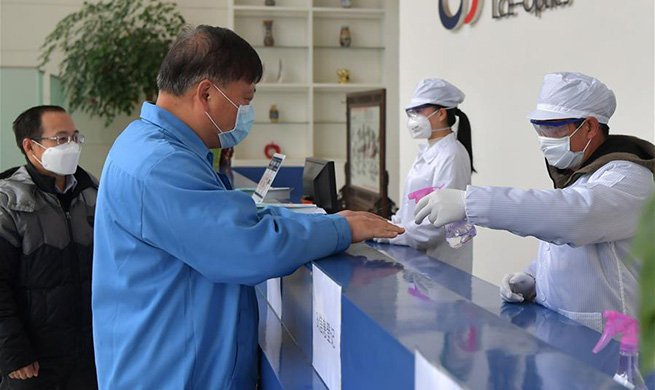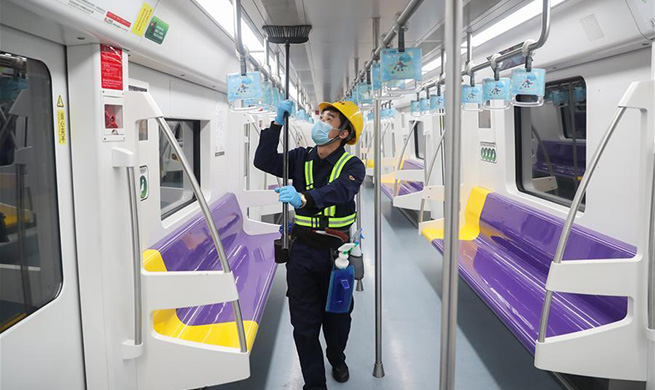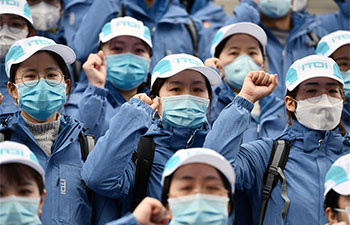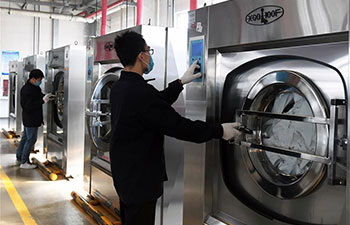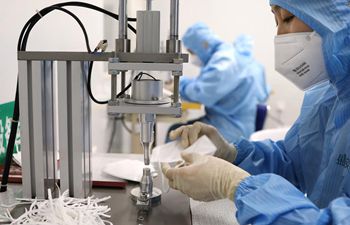ROME, Feb. 15 (Xinhua) -- A national awareness campaign was launched in Italy on Saturday to mark the International Childhood Cancer Day, along with a scientific conference on the current state and perspectives of pediatric cancer treatment.
Promoted by the World Health Organization (WHO) and the Childhood Cancer International (CCI) -- a global network of 188 associations of families of children with cancer -- the event is celebrated on Feb. 15 every year to boost knowledge and support for ill children and their parents.
In Italy, about 1,500 children aged 0-14 years and some 900 adolescents are diagnosed with cancer every year, according to statistics by the Health Ministry.
"In recent years, good levels of cure and recovery have been achieved for leukemia and lymphoma, while for solid cancers -- and especially for brain cancer, neuroblastoma, and sarcoma -- survival rates are still low," the ministry said in a statement.
Themed "Solid cancers: current state and perspectives", the conference was organized by Italy's Association of Pediatric Hematology and Oncology (AIEOP) and Federation of Oncology Parents' Association (FIAGOP) under the auspices of the Health Ministry in the southern city of Salerno.
Researchers in oncology, hematology, and immunology gathered to assess "the diagnostic novelties and the issues related to the medical, surgical, or neurosurgical and radiotherapy approach to solid cancers," organizers said.
So-called "solid cancers" in fact represents two-third of the about 1,500 cases of pediatric cancer diagnosed in Italy every year, according to official data.
Experts especially focused on "the therapeutic innovations regarding indication for use of the new 'biological' drugs, as well as the proton therapy for patients in need of radiotherapy," the ministry explained.
The proton therapy is a type of radiation therapy in cancer treatment that uses protons instead of x-rays to destroy cancer cells.
The scientific meeting finally assessed the latest recommendations for long-term follow-up in order to prevent, or early diagnose, the possible side effects related to treatments.
Patients who specifically recovered from pediatric cancers in Italy were estimated in some 50,000, and with an average age of 29 years, according to AIEOP data.
Beside the conference, an awareness campaign themed "Let's give roots to hope, let's plant a pomegranate" was launched nationwide, also through social media.
Pomegranate saplings were distributed and planted in hospitals, reception houses, schools, and public gardens across the country by health authorities, doctors, children patients and their parents together.
In a sideline initiative, a project was launched to set up a "Euro-African multi-disciplinary International Scientific Committee" in 2020.
The project aims to connect department heads and medical staff of 10 hospitals and neurosurgery institutes in Italy, Ukraine, Morocco, Cote d'Ivoire, and Uganda.
Considering all of the cases of cancer (not limited to childhood), Italy boasted higher survival rates than the rest of the European Union (EU), according to a recent report.
The study, published by the European Commission in cooperation with the Organization for Economic Co-operation and Development (OECD), was presented in Italy on Jan 17.
It showed survival rates in Italy were 90 percent against 87 percent in the EU for prostate cancer; 16 percent against 15 percent for lung cancer; 86 percent against 83 percent for breast cancer; and 64 percent against 60 percent for colon cancer.
According to the WHO, approximately 300,000 children (up to 19 years) are diagnosed with the disease every year around the world.
"With access to quality care, more than 80 percent of children with cancer can survive, living full and healthy lives," it stated.
However, such high rates concerned young patients in high-income countries, while in many low- and middle-income countries "only about 20 percent of them are cured," according to the global organization.
In Sept. 2018, the WHO thus announced a new effort -- the WHO Global Initiative for Childhood Cancer -- aimed at reaching at least a 60-percent survival rate for children with cancer in the world by 2030.
